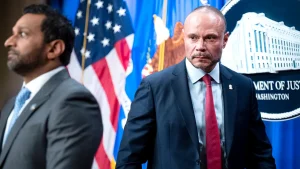On a day marked by heightened tensions in the Middle East, Israel reported thwarting an attack originating from Yemen, attributed to the Houthi rebels. This incident followed a stark warning issued by Israeli Defense Minister Yoav Gallant, who vowed to “behead” the leadership of the Houthi movement. The specifics of the attack remain shrouded in deliberate ambiguity, with Israeli authorities refraining from disclosing the nature of the assault, the targeted location, or the methods employed in its interception. This lack of transparency fuels speculation and underscores the delicate security situation in the region. The attack and Israel’s response occurred against a backdrop of escalating regional conflicts and proxy wars, highlighting the volatile nature of the Middle East’s geopolitical landscape. The Houthi rebels, aligned with Iran, are embroiled in a protracted civil war in Yemen, adding another layer of complexity to the already tangled web of regional alliances and rivalries.
The Houthi movement, officially known as Ansar Allah (Supporters of God), emerged in northern Yemen in the late 1990s, initially advocating for the revival of Zaidi Shiism, a branch of Shia Islam prevalent in the region. Over the subsequent decades, the group evolved into a powerful political and military force, fueled by grievances against the Yemeni government, which they accused of corruption and marginalization. The Houthis gained significant ground in 2014, seizing control of the capital, Sanaa, and forcing the internationally recognized government into exile. This triggered a devastating civil war, further complicated by the intervention of a Saudi-led coalition in 2015, aiming to restore the ousted government. The conflict has plunged Yemen into a humanitarian crisis, with millions facing famine and displacement, exacerbating an already fragile situation. The Houthis’ alleged attack on Israel marks a significant escalation, potentially broadening the scope of the conflict and drawing regional and international actors deeper into the fray.
Israel’s response to the purported Houthi attack, while swift and decisive according to official statements, raises critical questions about the nature of the evidence supporting the claims and the potential ramifications of such pronouncements. The statement by Defense Minister Gallant, threatening to “behead” the Houthi leadership, is particularly inflammatory and could further escalate tensions. Such rhetoric, while potentially intended for domestic consumption or as a deterrent, carries the risk of miscalculation and unintended consequences in an already volatile region. The lack of specific details surrounding the attack also raises concerns about the possibility of misinformation or exaggeration, which could be used to justify further military action. The need for independent verification and transparent communication is paramount to prevent further escalation and foster de-escalation efforts.
The incident underscores the complex interplay of regional rivalries and proxy wars in the Middle East. The Houthis’ alignment with Iran positions them as a key player in the broader regional struggle between Iran and its rivals, including Israel and Saudi Arabia. This alignment fuels suspicions that Iran may be providing support and direction to the Houthis, potentially using them as a proxy to challenge its adversaries. Israel views Iran as its primary regional threat, and any perceived Iranian involvement in attacks against Israeli interests is likely to provoke a strong response. The incident highlights the potential for local conflicts to escalate into regional conflagrations, drawing in external actors and further destabilizing the region.
The purported Houthi attack and Israel’s response also highlight the increasing use of unconventional warfare tactics, including drone and missile attacks, in regional conflicts. The Houthis have demonstrated a growing capability to launch long-range attacks, employing drones and missiles against targets in Saudi Arabia and the United Arab Emirates. If confirmed, an attack against Israel would represent a significant expansion of their operational reach and a demonstration of their evolving military capabilities. This underscores the changing nature of warfare in the region and the challenges posed by non-state actors with access to advanced weaponry. It also raises concerns about the potential proliferation of these technologies and the risk of further escalation in regional conflicts.
The international community faces a complex challenge in addressing the escalating tensions in the Middle East. The protracted conflict in Yemen, the regional rivalry between Iran and its adversaries, and the proliferation of advanced weaponry create a volatile mix that demands a coordinated and multifaceted approach. Efforts to de-escalate tensions, promote dialogue, and address the underlying causes of conflict are crucial to preventing further violence and instability. The international community must also work to strengthen arms control measures and prevent the proliferation of destabilizing technologies. A comprehensive strategy that addresses the political, economic, and security dimensions of the regional conflicts is essential to achieving lasting peace and stability in the Middle East. The purported Houthi attack on Israel serves as a stark reminder of the fragility of the region and the urgent need for concerted international action.









